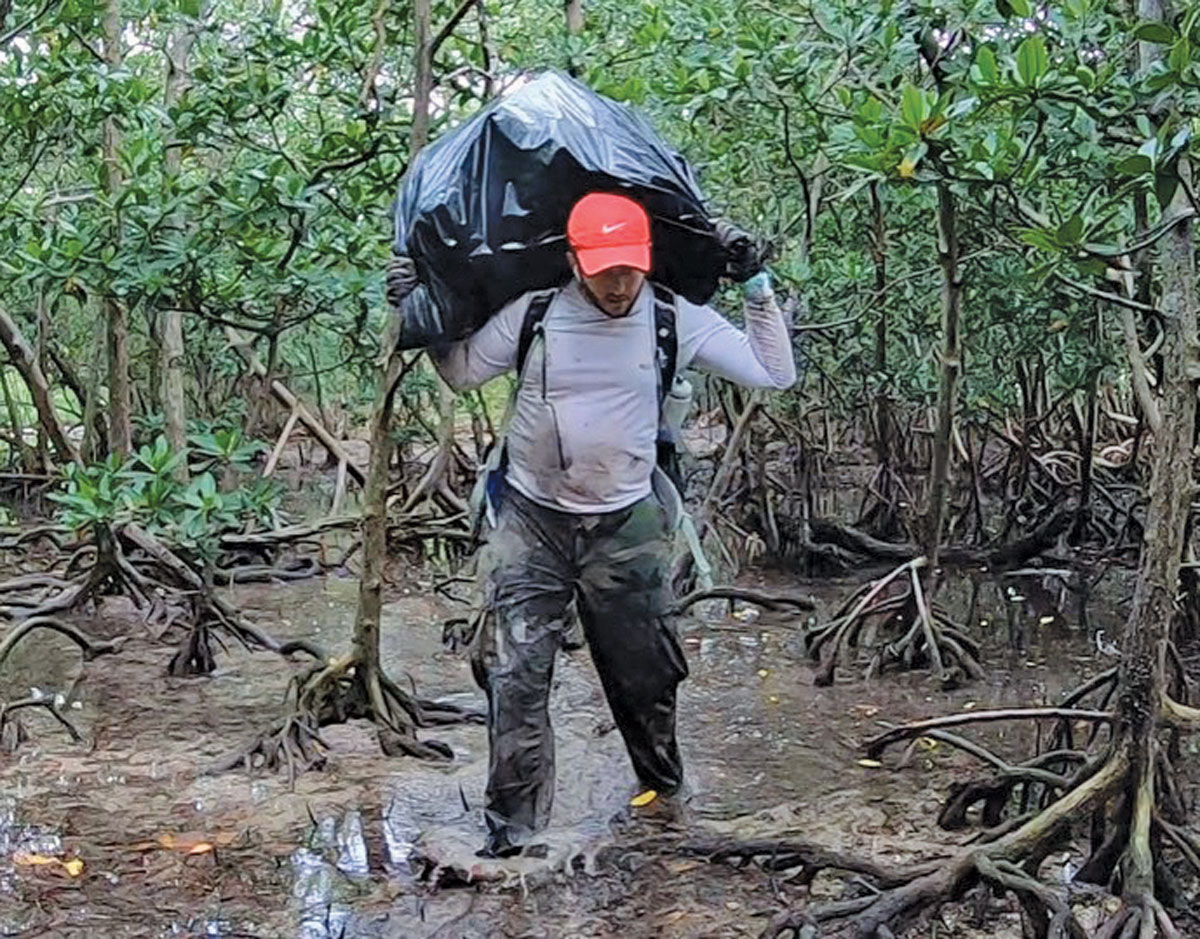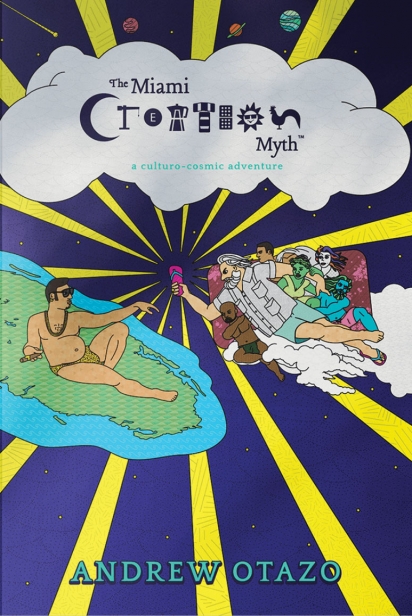Andrew Otazo: Of Mangroves and Miami Myth-making
How do you show mad love for your hometown? Pick up lots of garbage polluting its mangroves and beaches. Get involved with environmental organizations. And write a satirical book about Miami that invokes flung chancletas, fistfuls of croquetas and Mount Trashmore in all its Spanglish glory.
Meet Andrew Otazo, 35. The Miami-born and raised UM graduate, who describes himself as an amateur mangrove trash collector, policy and politics wonk, public speaker and environmentalist, lived in Buenos Aires, Brazil, Washington, D.C. and Boston before coming back home. His passion for the outdoors has taken him to Coastal Prairie Trail in the Everglades and the Big Cypress Swamp and Fakahatchee Strand in southwest Florida on solitary bike rides, cleaning up trash along the way.
But it’s the mangroves that Otazo keeps returning to again and again. A “recklessly curious” person, he has explored the tropical coastal shrubs since he was a teen, especially on Key Biscayne. “It looked like another world,” he says. “Mangroves are like a giant sponge. They’re a key ecosystem for reef fish and a rookery for egrets and osprey. Pelicans rear their young in them.” Mangroves play an essential role in protecting the shoreline when hurricanes approach. Their mass of roots prevent erosion and absorb the impact of storm surge.
Mangroves are also clogged with garbage. Otazo has taken it upon himself to carefully retrieve plastic bottles, thousands of tennis balls, tires, five-gallon buckets, discarded furniture and other trash from the sensitive mangrove stands. He also leads groups of middle and high school students on cleanups. To date, he has hauled out more than 11 tons of trash from the shorelines and parks, a feat he documents on his Instagram page.
Yet he believes his impressive efforts, and those of volunteers, have no impact on the environment, he says.
“I picked up 22,000 pounds but I will never solve marine pollution,” says Otazo. “People focus on individual solutions. I’m here to tell people they’re wrong. You can do all the right things, but you will make no difference.”
Otazo is not disillusioned – “I have no time for cynicism or nihilism” – but practical. A self-described policy and politics wonk, he wants Miamians to pressure elected officials into making the environment a priority because local, state and national elected officials are the ones who can make meaningful change. “Real change happens on a systemic level,” he says. “You have to get involved with policymakers. Go to commission meetings. Go to meetings on the Biscayne Bay watershed. Speak publicly. Join like-minded organizations, like Miami Waterkeeper, Tropical Audubon, The CLEO Institute. Elected officials do care. Write your commissioner. They have to read it.”
Otazo’s other labor of love is The Miami Creation Myth, his Cuban-accented satirical version of Miami’s origins that combines only-in-Miami visuals, multilingual dialogue (with translations) from diverse communities, and very real problems of gentrification and development. The book came about after six years of work, 1,500 memes, two stage shows and 153 short stories. It’s a ridiculous and hilarious saga, one that “comes from a place of love and optimism,” says Otazo. “I want the community to be better. I take Miami to task, but personally there’s nowhere else I feel comfortable.”
The Miami Creation Myth
Available at local independent retailers Martha of Miami, Books and Books and Sweat Records, and Barnes and Noble on Miracle Mile and online at Amazon.
Andrew’s Must-Follows
Otazo recommends following these people and groups to find out more about effective ways to help the environment.
Irela Bague (IrelaBague), Miami-Dade’s first chief bay officer
Clean This Beach Up (cleanthisbeachup), a nonprofit that organizes cleanup events and other ways to fight plastic pollution
The CLEO Institute (cleoinstitute), a nonprofit dedicated to climate education, advocacy and engagement
Daniella Levine Cava (Mayordlc), Miami-Dade mayor
Fill A Bag (Fillabag), volunteer beach cleanup program
Miami Freedom Project (MiamiFreedomProject), advocating for climate, economic, health, immigrant and racial justice
Miami Waterkeeper (MiamiWaterkeeper and miamiwaterkeeper_rachel), supporting swimmable, drinkable and fishable water for all
Ana Pelaez (hungrysofia), author and co-founder of the Miami Freedom Project
SMASH Miami (smash.miami), Community Land Trust nonprofit advocating for housing and climate justice
Transit Alliance (transitmia), working to improve walkability, bikeability and public transit in Miami-Dade
Tropical Audubon Society (@tropicalaudubon), longtime voice of conservation in South Florida
Volunteer Cleanup (volunteercleanup), a nonprofit that lists shoreline cleanups
And of course follow Andrew andrewotazo and miamicreationmyth.






